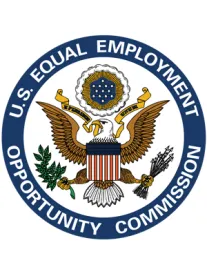As most employers are well aware, the Equal Employment Opportunity Commission (“EEOC”) is responsible for enforcing federal laws that make it illegal to discriminate against a job applicant or an employee because of the person’s race, color, religion, sex national origin, age, disability or genetic information. After an individual submits a charge of discrimination to the EEOC—and if the parties cannot come to an agreement to settle the charge through the EEOC’s mediation process—the EEOC investigates the allegations to determine whether there is reasonable cause to believe that discrimination has occurred. Generally, the EEOC does not make a finding, and instead issues a “Dismissal and Notice of Rights” (more commonly known as a “right-to-sue” letter) notifying the charging party that they have 90 days to file a discrimination lawsuit, or their right to sue based on the charge will be lost.
In a little-publicized move near the beginning of the U.S. coronavirus lockdown, the EEOC temporarily suspended issuing right-to-sue letters with respect to most charges of discrimination. That decision was made as a part of the EEOC’s efforts to operate in accordance with public health guidelines. Since March 21, 2020, right-to-sue letters have typically been issued only to charging parties who have requested them.
However, the EEOC resumed sending out right-to-sue letters on August 3, 2020, and announced that any suspended notices would be sent out between that date and September 30, 2020. The EEOC stated, “Recognizing that further delays in issuing charge closure documents could negatively impact both parties’ ability to protect and exercise their rights effectively, the EEOC is resuming its issuance of these documents.”
Undoubtedly, the sudden influx of right-to-sue letters in a two-month period that typically would have been issued over a 6-month period will result in an increase in discrimination lawsuits and settlement demands over the next several months. Although not all charging parties who receive a right-to-sue letter will file a lawsuit, employers should immediately contact their counsel if they are served with a lawsuit, as failure to timely respond can result in a default judgment against the employer.





 />i
/>i

